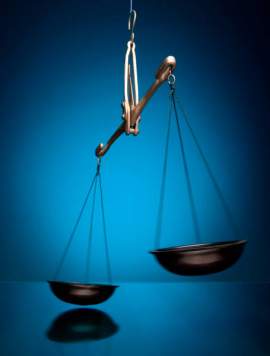
Important Facts to Know About The National Court Reporters Association

What is the
National Court Reporters Association?
The National Court Reporters Association (NCRA) is
considered to be the authoritative institution responsible for not only the
regulation of certifications granted to Stenographers, also known as Court
Reporters, but also for the oversight of the practice of legal transcription
and court reporting.
The NCRA began as an institution specializing in shorthand with regard to the provision of expedited and accurate transcription of events. The National Court Reporters Association utilizes The Phrase Book of Pitmanic Shorthand with regard to the instruction of authorized legal and medical transcription.
With regard
to their accreditation process, the National Court Reporters Association
accredits fewer than 90 Stenography Educational Facilities. In many cases, a
certification from an NCRA-accredited institution will be required for
employment.
What is a National Court Reporters Association
Certified Court Reporter?
Court Reporting, or Stenography, is the practice
of legal transcription of speech into text taking place within a court hearing
or trial performed by Court Reporters, who are licensed and certified
professionals. Stenography positions are classified as legal occupations
requiring earned certifications from NCRA-accredited institutions.
The mastery
of Stenography requires the ability to produce accurate and expedited legal
transcription of speech within a legal venue, which is accomplished through the
proficiency in shorthand, stenography, and typing skills.
A Registered Professional Reporter (RPR) is the
most common type of legal transcription certification, the National Court
Reporters Association requires prospective court reporters to become proficient
in the utilization of shorthand, stenography, and typing skills in order to
ensure the production of accurate and expedited transcription of speech.
Equipment Regulated by the National Court
Reporters Association
Court Reporting involves the use of the following
equipment in order to provide for the transcription of oral speech into textual
format:
Stenotype
A Stenotype, oftentimes referred to as a
Stenograph machine, is a device that resembles a typewriter used by a
Stenographer for the purpose of transcription. The stenotype was patented in
1879. Unlike a traditional typewriter, a stenograph machine contains only 25
individual keys and does not rely on the operation of the ‘QWERTY’ traditional
keyboard format, in contrast to traditional keyboards typically associated with
computers and typewriters.
National
Court Reporters Association approved Stenotypes possess fewer keys, in addition
to keys representing ‘whole’ words determined to be the most common within
legal proceedings, allowing for the transcription of words in lieu of
individual keys representative of individual letters.
Thyra D. Ellis is considered amongst the pioneers
of stenography who assisted in the development of the requirements necessary
for satisfaction by an individual stenographer interested in becoming a
Registered Professional Reporter (RPR), which includes a standard for words-per-minute
typed, the mastery of legal shorthand, and the adherence to the protocol
required of legal transcription. Many of Ellis’s standards have been
implemented by the National Court Reporters Association.
Standard legal transcriptions may involve the
production of legal transcripts ranging from 100 to 300 words recited per
minute.
Chording is a typing method utilized within the
field of Stenography allowing court reporters to adequately and accurately
transcribe legal hearing through the pressing of multiple keys in a single
stroke. Chording allows stenographers to transcribe whole words in lieu of
typing the word in a ‘letter-by-letter’ fashion, which results in stenography
taking place in a ‘real time’ setting.
Alternative Equipment Recognized by the National
Court Reporters Association
Court Reporting undertaken through the utilization
of voice recognition technology relies on the digital processing of the
distinctive and specific nuances latent within the human speaking voice. The
National Court Reporters Association ensures the accuracy of utilization of
this particular technology through certification that includes the proficiency
in both proofreading and editing.
NEXT: What You Didn't Know About Court Reporting





















